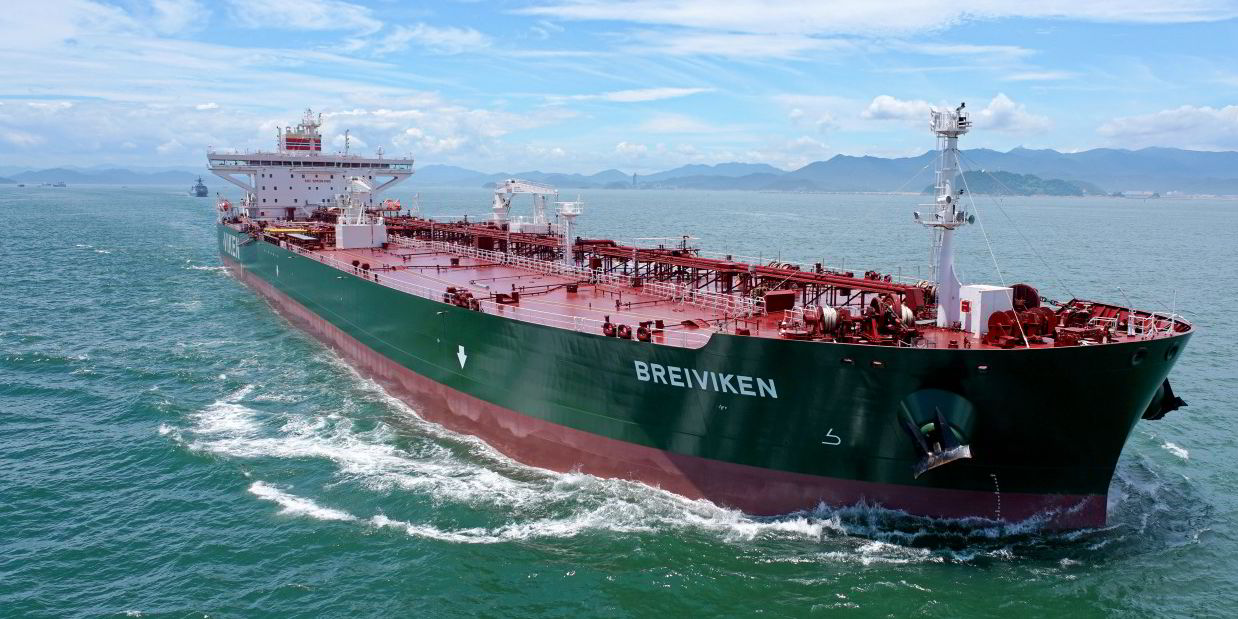Norwegian tanker owner Frontline is closing out its last charter commitments to lift Russian cargoes as a ship loads at Novorossiysk.
Frontline Management chief executive Lars Barstad told TradeWinds that the 109,900-dwt LR2 product tanker Front Cougar (built 2016) has just loaded naphtha at the Black Sea port. Once it is out of the Black Sea, Frontline is done with Russian ports and risk from the Russo-Ukrainian war until further notice.
“There’s really only one ship you have to wish me good luck on, and that’s it,” he said.
Two other LR2 vessels — the 110,600-dwt Front Leopard and 111,000-dwt Front Lynx (both built 2016) — are on the way out of the Baltic now with Russian crude from Ust-Luga and Primorsk.
Barstad said all had been committed to Western oil major charterers before any sanctions on Russian entities were announced.
Failing to perform on the committed charters was not an option.
“If you know anything about shipping, you know that a charterparty ties the owner to the contract,” he said. “You can’t refuse the cargo. If you do, the charterer can sue you for all potential losses and damages related to the cargo itself.
“That’s a substantial monetary risk.”
Barstad said there is no risk of the charterers of the three ships not being able to pay, whatever the fate of the oil. None are Russian-related entities. Russian cargoes form only a small piece of the John Fredriksen-controlled company’s business, and Barstad said Frontline has not done business with a Russian counterparty for at least a couple of months.
“Russia has never been a big location for us anyway,” he said.
But now Frontline is closing that door entirely.
“We’re taking a very low-risk approach,” he said. “We don’t want to meddle in this market.”
Frontline will now no longer trade to Russian ports in part because of reputational risk during the Russian invasion of Ukraine, and in part because of the indirect effect of sanctions.
“Effectively, we can’t call at Russian ports because of the port infrastructure,” Barstad said. “We can’t pay third-party service providers like towing companies that may be related to sanctioned Russian entities.”
He said Frontline’s Know Your Business Partner (KYBP) routines and the sanctions-warning systems of the information providers it uses are thorough, and rule out any hidden links between charterers and Vladimir Putin’s oligarchs.
“We cross-check every new counterparty,” he said.
But he believes oil and products will keep moving as long as there is demand, and a few daredevil owners eager for the risk premium.
“As long as oil and products and the molecules themselves are not sanctioned, and as long as the oil is actually wanted by the sanctioning entities themselves [such as the US and the UK], there will always be owners who can manoeuvre within the sanction, because they don’t have any reputational risk,” Barstad said.
“Because the Russian ports are still well functioning, and the Western world and the sanctioning entities actually want the oil to keep flowing.”





